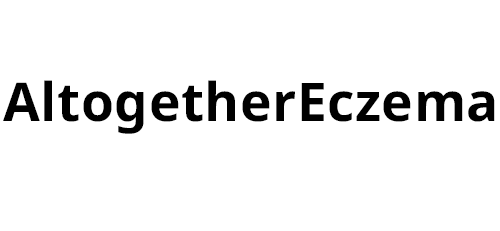- Science
- Clinical Trials
- Guide to Clinical Trials Your participation makes a difference
- Clinical Trials in Children Designed to improve kids' health
- Data and Results Sharing our Results
- Integrity and Transparency Building Trust
- Diversity Equity and Representation
- Plain Language Study Results Trial Result Summaries
- Expanded Access & Compassionate Use Possible Treatment Options
- Find a Trial
- Areas of Focus
- Rare Disease Smaller populations but big impact
- Internal Medicine Extending lifespans worldwide
- Inflammation & Immunology Treatment at the molecular level
- Vaccines Preventing the spread of infections
- Oncology The science of optimism
- Anti Infectives Combatting an evolving risk
- Areas of Innovation
- Gene Therapy Breakthroughs become treatments
- Medicinal Sciences The next generation of science
- Precision Medicine Developing tailored medicines
- Maternal Immunization Protecting newborns at the start
- mRNA Technology Unleashing the next wave of scientific innovations
- Diseases & Conditions
- Coronavirus Resources
- Product Pipeline
- Research Sites
- Clinical Trials
- Products
- How Drugs are Made
- Branded vs. Generic Learn the difference
- Biologics & Biosimilars Cures found in nature
- Commitment to Quality Maintaining the highest standards
- Global Supply Strategic manufacturing locations
- Manufacturing Sites Where medicine is made in the U.S.
- Medicine Safety
- Health Literacy Learning to be well
- Treatment Choices Learning about treatment decisions
- Partnering With Patients Helping others by reporting side effects
- Tips for Patients Preventing medication errors
- Reporting Adverse Events
- Counterfeiting Preventing medication errors
- Product Safety
- Product List
- Product Contacts
- PfizerPro for Professionals
- Patient Assistance Programs
- Distributors
- How Drugs are Made
- Stories
- Newsroom
- About
- People
- Executives Our senior-most leadership
- Board Members The people steering our company
- Scientists Our experts making discoveries
- Patient Stories Our patients
- Colleague Stories Our colleagues
- Responsibility
- Ethics & Compliance Each of us is responsible
- Responsible Business Breakthroughs that change patients’ lives
- Patient Advocacy & Engagement Putting Patients First
- Global Impact Meeting urgent needs worldwide
- Diversity, Equity, and Inclusion Everyone has something to offer
- Environmental Sustainability Our responsiblity to the environment
- Human Rights Furthering dignity and worth
- Health & Safety
- Intellectual Property The benefits of fair competition
- EHS Governance
- Misinformation
- Programs & Policies
- Grants Support for independent research
- Political Partnership Supporting like-minded organizations
- Working with Healthcare Professionals Collaboration to improve lives
- Prescription Value & Pricing How to lower patient costs
- Privacy Principles Commitment to personal data privacy
- Ready for Cures Improving Access to Medicines
- Transparency in Grants Committed to Disclosure
- Investors
- Investors Overview Information for stockholders
- Why Invest Why to join us in our mission
- Events & Presentations Calendar of upcoming events
- Financial Reports Quarterly reports and more
- Investor News Announcements about our performance
- Stock Information Charts and data
- Shareholder Services Information on stock transactions
- Corporate Governance
- Corporate Governance Overview Gaining insight into our performance
- Board Committees & Charters Defining the corporate structure
- The Pfizer Board Policies Ensuring ethical leadership
- Corporate Governance FAQs Learn more about our approach
- Contact Our Directors Email any of our Directors
- Purpose
- History
- Careers
- Partners
- People
Eczema Inside Out Resources
Help bolster communication and self-advocacy by exploring resources developed for members of the eczema community, including patients, caregivers, and healthcare providers (HCPs).
Discussion Guide for People Living with Eczema
Starting a conversation with your doctor about your eczema (also called atopic dermatitis or atopic eczema) symptoms can be overwhelming and difficult to handle. This downloadable guide can help you navigate your next doctor’s appointment by offering tools to help you prepare for an open dialogue with your physician and set goals for how to manage your eczema.
Open Dialogues: A Patient Perspective on Shared Decision Making
In this video, Anne Marre shares her experiences with eczema and her journey finding the right healthcare provider for her individual needs.
Eczema Caregiver’s Guide
Caring for someone with eczema can sometimes be difficult and feel overwhelming. This guide aims to help caregivers feel more prepared. This guide has it all: a list of questions to ask at a doctor’s appointment, visuals of physical symptoms, tips on how you can ensure you’re taking care of yourself, and more.
Explore these frequently asked questions from patient advocacy organizations around the world to help support you on your eczema journey.
Please note, the content below is owned by each respective organization and is not affiliated with or owned by Pfizer. Content provided by these organizations is informational only and should not be taken as professional medical advice. If you require medical help, please reach out to your healthcare provider. If you can't find what you're looking for, please use this contact form to submit your question.
The Allergy & Anaphylaxis Australia's (AAA) vision is to improve the quality of life of those living with allergic disease including atopic dermatitis (eczema). Guided by a Medical Advisory Board, they have a wealth of trusted information and trained health professionals to respond to people needing information and support.
The Asociación de Afectados por la Dermatitis Atópica (AADA – Spain) provides a “101” on eczema in Spanish, touching on facts around diagnosis, symptoms, disease onset, and more.
The Eczema Association Australasia (EAA) answers fundamental questions on the causes, symptoms, and complications related to eczema. In addition, an FAQ offers access to a summary of their Eczema Impact Report, a study reviewing how eczema affects individuals over a 25-year period.
Eczema Support Australia (ESA): 1. Connecting Australians affected by eczema so that no one living with eczema feels isolated or alone. 2. Informing and educating Australians affected by eczema so they are equipped to cope with the condition. 3. Advocating for practical support to improve the lives of Australians affected by eczema.
GlobalSkin's patient education campaign, AltogetherEczema, provides an FAQ that answers questions about eczema, the campaign, and ways to get involved with your local patient organization.
The IAAD offers an information pack with tips, explanations, and an FAQ in Hebrew. Covering topics including strategies of coping with the day-to-day life struggles, the effect of the environment, triggers to the skin and more.
The Irish Skin Foundation (ISF) shares a comprehensive booklet on key facts to know about eczema, including an explanation of potential triggers and tips to manage symptoms and flare-ups.
The National Eczema Association (NEA) offers a comprehensive FAQ for those looking for more information at all stages of their eczema journey.
The Skin Health Institute (SHI) is a leading expert on eczema management, focusing on topics including impact of diet, triggers to avoid, and how to repair the skin barrier.








